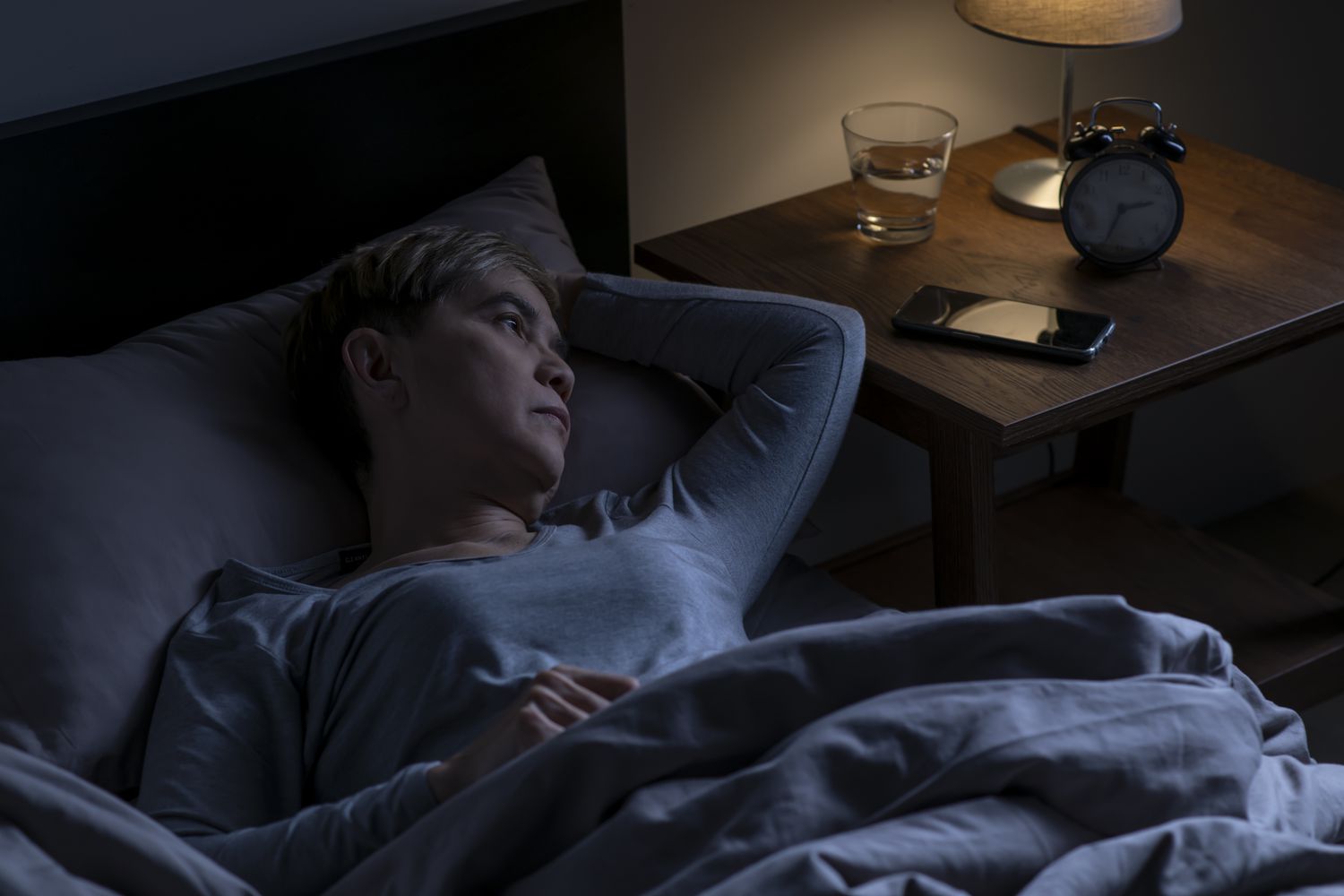4 Techniques Sleep Experts Use to Combat Restlessness

The end of daylight saving time is approaching on Nov. 3 at 2 a.m., which means it’s almost time for most people in the United States and Canada to set their clocks back an hour.
Many experts agree that “falling back” is an easier transition than springing forward in March (partly because you can potentially get an extra hour of shuteye in the morning after the clocks change). But any changes to your sleep schedule can be challenging to navigate, especially if you have issues with falling or staying asleep.
Conking out on demand can be difficult even when you don’t have to contend with time resets. Research shows that anywhere from 50 to 70 million Americans have a chronic sleep disorder, and one in three adults say they don’t get enough sleep every day.
If you’re consistently struggling with sleep, it’s a good idea to see a doctor for an evaluation to see what could be behind this. But even if you have a smooth sleep situation, you may have the odd night or two when it’s hard to fall asleep—including after you push back the clock this week.
With that in mind, we tapped four experts who treat sleep disorders to see what they do when they just can’t sleep. Here are their tips.
When sleep doesn’t come quickly, it’s audiobook time for Jade Wu, PhD, a board-certified behavioral sleep medicine specialist and author of Hello Sleep: The Science and Art of Overcoming Insomnia Without Medications. “I listen to an audiobook or a lecture from the Great Courses,” she told Health. “Currently, I’m listening to a theoretical physics lecture series on quantum mechanics.”
Wu said she’s learned to think of time when she has trouble sleeping as “extra ‘me’ time to enjoy something I don’t always have enough time to do.”
“I love reading, but my hectic life doesn’t allow a lot of uninterrupted, peaceful reading time,” she said. “I like audiobooks and lectures because then I can also do some stretching or still doze a little bit. Oftentimes, I fall asleep while listening. Even if I don’t, I get to enjoy my book or lecture.”
Wu said she recommends this hack to everyone. “The vast majority of patients and people I’ve recommended this to have enjoyed it and found it helpful for at least decreasing their anxiety and frustration with insomnia,” she said. “They’ve often also found that they must have slept more than they realized because they didn’t remember all of the lectures and chapters they listened to, which further decreased their angst about sleep.”
This move can also allow people to feel relaxed instead of trying to focus on sleep, she said. For those who want to try this, Wu suggests starting an audiobook habit during your waking hours. “Maybe have an audiobook or lecture series already going in the background of your life,” she said. “Feel free to listen when you’re folding laundry, driving, etc., so when you want to get into it while having trouble falling asleep, you can get into it right away.”
Something else to remember: It’s best to avoid content that’s too stimulating. If it is, Wu said you can wind up trying to keep listening to find out what happens next.
Changing your mindset around sleep can make a big difference, W. Christopher Winter, MD, a neurologist and sleep medicine physician with Charlottesville Neurology and Sleep Medicine and host of the Sleep Unplugged podcast, told Health.
“I don’t really think about it as a situation where I ‘can’t sleep’...I’m just not sleeping in the moment,” he said. “It’s no different than lunchtime rolling around and me not feeling hungry.”
Winter said he’s learned to enjoy being awake in bed and doesn’t stress when sleep doesn’t come easily. “It’s quiet and peaceful, and I feel a positive sense of being free from any responsibility,” he said.
“The secret to overcoming insomnia is finding joy in being in bed, awake,” Winter continued, referring to a common sleep disorder that makes it hard to fall or stay asleep. “I’ve had patients describe being awake at night in the worst, bleakest terms. Why has simply being awake in a comfortable bed become such an awful situation? If you can learn to be as happy in bed awake as you are when you sleep, insomnia loses its grip on you.”
Winter stressed that struggling with sleep from time to time is “normal.” Because of that, “everyone needs to have a plan for the situation and truly evaluate the emotions they bring to it. Those emotions can be a huge contributor to sleep issues,” he said.
So, Winter recommends that people “stop trying to control” insomnia. “Learn to relish simply resting for a while until sleep comes because eventually it always does,” he said. “There really is no such thing as ‘can’t sleep’...only ‘can’t sleep right now.’”
Eunice Torres Rivera, MD, a sleep medicine physician at Northwestern Medicine, told Health that she takes action when she can’t sleep. “I get out of bed, and I move to a different area of the house,” she said. “It needs to be somewhere comfortable, dimly lit, or dark. That helps me to reset.”
Then, she’ll do something relaxing. “That means practicing breathing exercises or listening to a meditation,” she said.
Torres Rivera said you can also watch TV, although she suggests setting the screen to night mode or using a blue light filter. “It’s ultimately a matter of doing something that you find comforting or relaxing,” she said.
Wu said she might return to bed if she felt herself getting drowsy. But she also chooses a spot where she’s OK with falling asleep.
“Don’t look at the clock, and don’t make it a time-based thing,” Wu said. Then, she suggests continuing with your usual wake time in the morning. “That will build your sleep drive for the next day,” she said.
Andrea Spaeth, PhD, a sleep medicine researcher at the Rutgers-New Brunswick School of Arts and Sciences, told Health that it’s helpful for her to try to think about the cause of what could be keeping her awake. “Usually, it’s too much caffeine or stress,” she said. “Then, I remind myself that it’s temporary and that it’s OK to have a bad night of sleep once in a while.”
Spaeth said it’s important to remember that sleep changes as you age. “Assuming you will sleep the way you did as a teenager isn’t a good comparison,” she said. “Sleep needs and patterns change as we age, and that is OK as long as it isn’t impairing your daytime function.”
Spaeth said that stressing about inadequate sleep will only make the situation worse. “Chronic poor sleep is associated with adverse health outcomes, but having a bad night of sleep once in a while is normal and won’t have long-lasting effects,” she said. “Health behaviors are important goals, but it is OK to not meet those goals every single day,” she said.
“Over-analyzing and over-thinking about our health can bring about its own negative outcomes,” Spaeth added.
She also offers this advice: “If you have a bad night, try to figure out why and then move on. Chances are, you’ll sleep fine the next night.”




